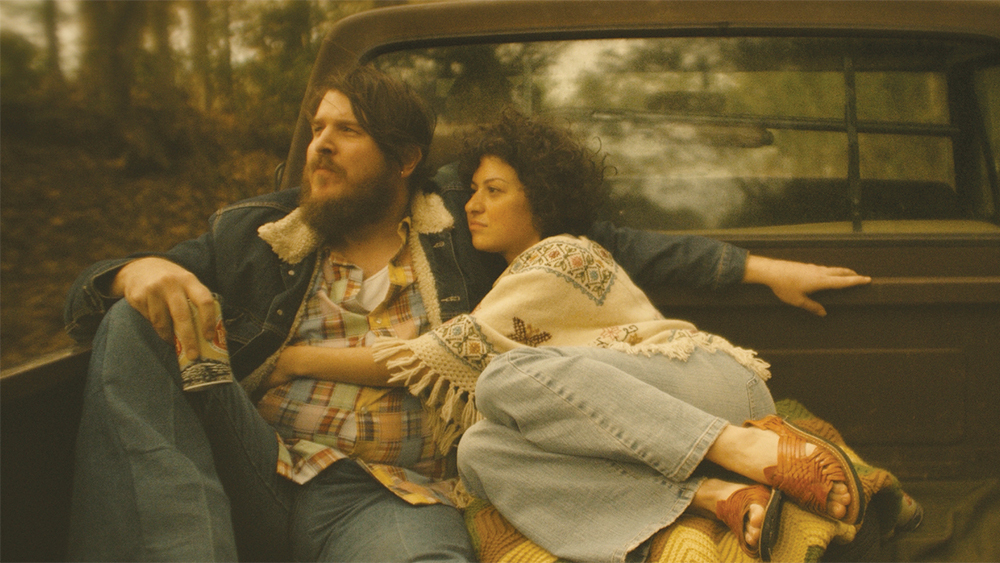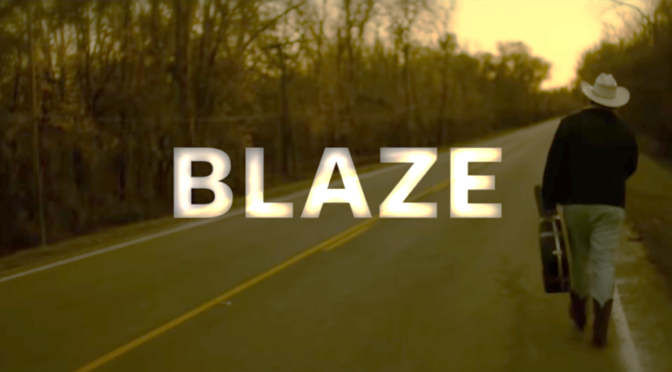Ethan Hawke (Before Midnight) gets behind the camera to direct a biopic on the life of country musician Blaze Foley. The film follows Foley, played by Ben Dickie, as he travels between gigs at local bars often ruining his own performances with his constant inebriation. Hawke chooses to use a non-linear structure and cuts between his performances, his time with his wife Sybil (Alia Shawkat; Arrested Development), and a radio interview with other prominent musicians. The nearest comparison would be the Coen Brothers’ Inside Llewyn Davis, but the narrative takes a much more insular look at Foley’s life and does so without the Coen’s trademark sarcasm.
Despite the limited budget, the film’s visuals are outstanding. Hawke and cinematographer Steven Cosens have created a series of gorgeous, nostalgic images evocative of country living. The bulk of Foley’s home life bears a distinct amber hue and even his meager accommodations are rendered in loving compositions with light feathering at the borders to create a wistful tone. The most arresting visual of the film is an ultra-slow-motion wedding scene that is also a great example of expressionist filmmaking. Hawke elongates this pivotal, joyous moment to capture their elation. As bubbles lazily float by and confetti slowly falls, the couple is locked in a seemingly endless embrace symbolic of their enduring love. The beautiful cinematography makes the film an engaging view, even when the narrative meanders and outstays its welcome.

Hawke has a clear love for Foley’s life and music, but the film Is ultimately unable to create the same affection in the audience. For those of us unfamiliar with Foley’s work, his portrayal can often be repulsive. His relationship with Sybil is sweet at times but is marred by his own selfishness. He is so focused on his own music that he ignores the sacrifices made by his loving wife who works to support him as he screws up his chances because of his drunkenness. Foley’s music is repeatedly referred to as revolutionary, but to the average ear it just sounds ordinary. Pleasant, but nothing to write home about. Foley also claims that he has morals and goals beyond music. He talks about the “pessimistic world” and wanting to be a legend, not a star, because “a legend means you stand for something” whereas stars only exist for themselves. The natural question becomes what does Foley stand for? For artistry in the face of commercialism? For heartfelt songwriting? These might be the intended answers but his self-destructive behavior makes them dubious claims. His disparaging of other musicians and the industry as a whole are more like self-righteous ramblings from an alcoholic wannabe. There have been many stories, both fictional and real, of struggling singers that never succeed because of their own substance abuse but the narrative does little to distinguish this particular story from the countless others. Hawke’s film, while impressively shot, never provides an answer to why Blaze Foley is worthy of our attention or what impact he left on his industry.

3/5 stars.
